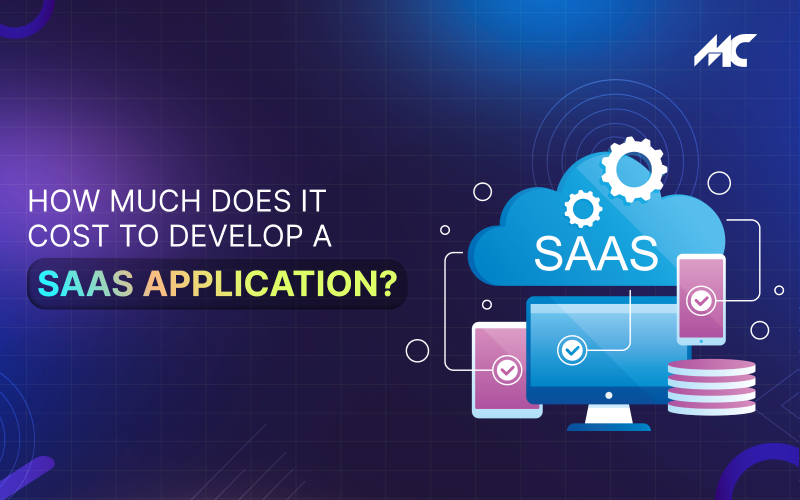12 Pointers to Strategize for Mobile Application Development
Digital presence matters a lot in accelerating the wheels of your business success in a shorter period. Several startups are aspiring to go mobile to establish robust brand visibility and steer heavy organic traffic towards their web portals. Although having a compelling website is a key to exemplify your business, you can’t solely count on it to generate double-fold revenues for expeditious business growth. Here comes the necessity to leverage mobile apps to reach out to more customers for better user engagement. Since mobile application development is proven as a rewarding practice for every business, getting a mobile app might serve you manifold opportunities to expand your market share and increase profits.
Most businesses are turning towards mobile app developers to strengthen their foothold in the competitive marketplace. Whether you’re a creative-minded entrepreneur or a startup, you must be looking for a mobile app as a medium to reach your potential customers and facilitate exceptional user experience with every click. However, one can’t foresee the success of app development project without the right strategy as there is a long list of tasks & processes involved in each phase of creating an application. It is time to pull up your socks as here is an ultimate checklist to prepare yourself for the future of your project with the successful launch of a fully-functional app for varied platforms:
Key Points to Strategize for Mobile Application Development
1. Describe Your App Idea & Business Objective
You can’t step ahead in the mobile application development process without clarifying the prime objective behind app creation. It is prerequisite to redefine your business goals and determine the feasibility of app idea in the same context. Start briefing about your app mentioning the core idea in simple words and further elaborate the concept to others. Ask these questions to yourself and try to answer them to get a clear picture in your mind:
- What does your app idea will portray?
- What benefits your app will bring to you?
- How your app will perform?
- How end-users will be using it for a specific purpose?
2. Outline Your Target Users
Knowing that the market is already flooded with the millions of mobile apps, you can’t predict the future of your app idea. You may consider several factors behind the uncertainty in the success of your mobile app idea and its irrelevancy from the perspective of usability is one of them. In other words, project strategists must do some research work to know your target audience while getting indulged into the pre-development process.
For instance, there will be a huge difference between a strategy for developing an app for online buyers and a company’s employees. It is quite obvious that a mobile app for retail business will focus on the shopping preferences of customers while the requirements for an app designed for employees are subjected to vary with the major purpose behind its use. Therefore, you must gather some insights into your user base to attain a clear understanding of your potential users.
Don’t do a blunder making all of your efforts in creating an app only for the sake of introducing an app like your competitors. It sounds more meaningful if you conduct some research to know your customers by preparing a questionnaire referring to the audience, their preferences, strategies to design an app based on their needs, & more. These steps will refine the motive behind mobile application development to let you take fruitful design decision of your app later on.
3. Know Your Competitors
In the presence of various similar apps in the marketplace, it is a bit challenging to create an app that will get hit irrespective of the category defined for it. Unless your app idea is unique & innovative, you can advantage of competitor research to ensure that you won’t be creating an app like everyone else’s. One must consider answering these questions while evaluating competitor apps:
- Why is the app idea successful?
- Does it go well with the purpose behind its use?
- What’s the competitive benefit of introducing this app?
Don’t forget to clarify the solution or services offered by your competitors’ apps & features they have.
4. Decide the Platform for App Development
The task of choosing the right platform for mobile app development worth your attention for many reasons and it is imperative to consider the target market, cost of development & timeline for this. Android or iOS? The dilemma might choose one from them will reside in your mind while developing an app. On one hand, the idea of limiting your app to just one platform is favourable for your budget while opting for multi-platform mobile app development is preferred to raise the chances of adoption. Don’t forget to keep in mind which platform your audience tends to use the most. Cross-platform development is another smart approach to deliver a project at minimal expenses.
5. Redefine the Project Budget
The budget for app development involves extensive planning & several considerations before jumping on the next level. Therefore, it becomes essential to estimate budget upfront and step ahead in the app development process keeping features & requirements of an app at priority. As per a report by Clutch, it is revealed that the cost of developing a mobile app varies from $30,000 to $70,000 with an estimated median expenditure of around $171,450. As far as budget is concerned, one must concentrate on the app development platform rather than focusing on a custom app development approach.
6. Pick Target Device
Getting on a device-specific approach for mobile app development is a worthwhile attempt as every device comes up with a specific screen resolution & size. Many OS versions are also introduced for iOS & Android. Therefore, selecting a target device for OS versions as well as device resolutions is very important.
7. Create Wireframes
Once you have defined the project requirements and milestones, it is time to set your eyes on app design & flow. Presenting rough sketches & wireframes before getting into core designing & development phase is essentially required to get a thorough understanding of the clients’ business and his expectations. Wireframing allows you to visualize & determine the scope of your app development project with an opportunity to emphasize its functionality. They act as blueprints to envision the initial look of your app along with a clear interpretation of its general flow users will follow.
8. Build & Share Prototypes
Even though your clients are not familiar with the role of prototyping in the app creation process, you must take a step to share mobile app prototypes to highlight the design, functionality, user flow, & other add-ons of an app via an interactive demo. Every reliable mobile app development company strives to get positive feedback from the client in terms of quality & satisfaction. These three factors will favour the significance of prototyping in the app development process:
- App prototypes can save a lot of time and efforts in app creation.
- Prototyping cuts down the costs by allowing you to take calculated decisions before getting into the development process.
- Building prototypes is a robust strategy to showcase your expertise & draw the attention of potential investors at an early stage of creating an app.
9. Leverage Backend Server
Apps like Facebook & Twitter use backend server to run smoothly across varied platforms. One must determine whether the app demands a backend server or not based on business requirements. Also, keep a check on the type of server that is required for the app.
10. App Deployment
Another strategy to add on in your checklist is app deployment. Be clear and precise while carrying out the deployment process that involves certain formalities to upload the app to a specific app store on Google Play & Apple app store. Internal app development is another process where the app will be published & shared internally. Various businesses apply the same concept where MDM controls the devices used for accessing an app.
11. Post-launch Support
Once an app is launched successfully in the marketplace, it will demand maintenance & support relating to upgrades, updates, bug fixes, & other technicalities. Most mobile app developers facilitate free post-launch support for a certain period as a part of their package.
12. Create a Strategy for App Marketing & Branding
The secret behind a successful app is a robust marketing strategy that begins during its development process. In other words, you have to start promoting your app before it gets ready to hit the app store. Choose an appropriate launch date for your app & outline a descriptive marketing plan to implement favourable strategies before the scheduled timeline for the app launch. Most businesses even opt for App store optimization to enhance their visibility on both the app stores.
Summing It Up
Counting on these pointers will let you bring a result-driven app development plan and execute it accordingly for a project. Having a predefined plan cultivates a potential to stay on the right track of the mobile app development process with brilliant efficiency & minimal probabilities of time loss and consumption of resources. Need assistance to get on the right platform for app creation for mobile strategy? Get an insight into crucial phases involved in mobile application development phases at MobileCoderz and get a roadmap for strategic app designing & development.
-

 Mobilecoderz Awarded as India’s Best iPhone App Development Company by Clutch
Mobilecoderz Awarded as India’s Best iPhone App Development Company by Clutch -

 How Much Does It Cost to Develop a SaaS Application?
How Much Does It Cost to Develop a SaaS Application? -

 Mobilecoderz recognized as the Top App Development Company in Saudi Arabia by GoodFirms
Mobilecoderz recognized as the Top App Development Company in Saudi Arabia by GoodFirms










